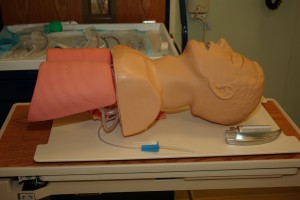FDA links breast implants to rare cancer
(The New York Times, 1/26/11)
The Food and Drug Administration (FDA) has linked both saline- and silicone-filled breast implants to a rare but treatable form of cancer. The cancer, anaplastic large-cell lymphoma, involves the immune system and is not a breast cancer. Usually a systemic disease, the lymphoma linked to implants grew in the breast, usually in the capsule of scar tissue around the implant. The cases were discovered in women who developed symptoms such as lumps, pain, asymmetry of the breasts, fluid buildup and swelling, long after implant surgery. In some instances, removing the implants and scar tissue eliminates the disease, but some women may need chemotherapy and radiation.
So far, there are about 60 of these cases worldwide. Although that is a small number compared with the five to 10 million women who have breast implants, it is still a concern, considering this type of cancer is found in only three in 100 million women who do not have implants.
The FDA says the data does not support discontinuing the marketing of implants, but women considering them should first discuss the matter with their doctors. Women with implants who have no symptoms need do nothing special or change their routine health care, but they should call their doctors if they notice any changes such as those noted above.
 An editorial in a recent New England Journal of Medicine is calling for yet another form that patients entering the hospital for elective surgery should sign: Informed consent when your surgeon is sleep deprived. No joke, it's a real proposal. A recent study found that attending surgeons who performed elective surgeries during the day after an on-call night of having less than "a six-hour opportunity for sleep" were significantly more likely to have complications related to their ….yawn…. procedure.
An editorial in a recent New England Journal of Medicine is calling for yet another form that patients entering the hospital for elective surgery should sign: Informed consent when your surgeon is sleep deprived. No joke, it's a real proposal. A recent study found that attending surgeons who performed elective surgeries during the day after an on-call night of having less than "a six-hour opportunity for sleep" were significantly more likely to have complications related to their ….yawn…. procedure.